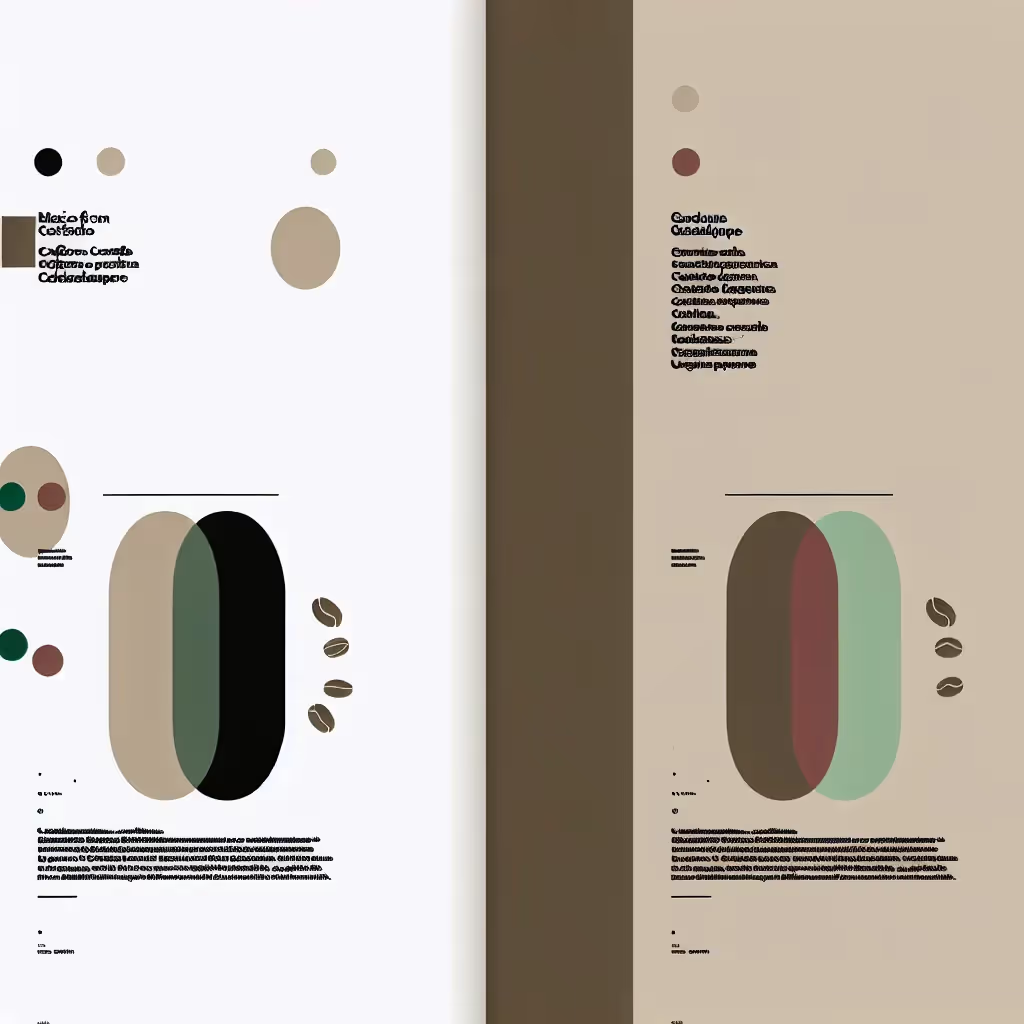Mexican Vs. Yemeni Coffee
This comparison explores the unique qualities of Mexican and Yemeni coffee, highlighting their distinct flavor profiles, growing conditions, and cultural significance in the world of specialty coffee.

Brief Description
Mexican coffee is known for its light body, mild flavor, and bright acidity. Grown primarily in the southern states of Chiapas, Veracruz, and Oaxaca, Mexican coffee benefits from the region's rich volcanic soils and high altitudes. The country's coffee industry has a strong focus on organic and shade-grown practices, resulting in beans that are both environmentally friendly and full of character. Mexican coffee often exhibits nutty, chocolatey notes with a subtle fruitiness, making it a versatile and approachable choice for coffee lovers.
Yemeni coffee is a true gem in the world of specialty coffee, known for its rich history and unique flavor profile. Grown in the ancient terraced gardens of the Haraz Mountains, these beans are cultivated using traditional methods passed down through generations. The harsh growing conditions and natural processing contribute to a complex, wine-like acidity and a distinctive wild, fruity character that sets Yemeni coffee apart from other origins.
Importance of Comparison
Comparing Mexican and Yemeni coffee is crucial for coffee enthusiasts seeking to expand their palate and understand the diverse world of specialty coffee. These two origins represent vastly different coffee-growing regions, processing methods, and flavor profiles, offering insights into how geography and tradition influence the final cup. By exploring these contrasts, coffee lovers can make informed decisions about their purchases and brewing methods.
Key Attributes
Origin
Mexican
Yemeni


Consumer Guide
When choosing between Mexican and Yemeni coffee, consider your flavor preferences and brewing methods. Mexican coffee offers a lighter, more approachable profile with nutty and chocolatey notes, making it ideal for everyday drinking and versatile brewing methods like pour-over and cold brew. Yemeni coffee, on the other hand, presents a more complex, intense experience with wild berry and spice notes, best enjoyed through methods that highlight its unique characteristics, such as French press or traditional Ibrik brewing. Consider the coffee's origin story: Mexican beans often come from organic, shade-grown farms, while Yemeni beans are steeped in ancient tradition. Ultimately, your choice may depend on whether you prefer a familiar, comforting cup or an adventurous, exotic brew.
Expert Opinions
Coffee expert Maria Rodriguez notes, 'Mexican coffee's bright acidity and chocolate notes make it a crowd-pleaser, while Yemeni coffee's wild, complex profile is a connoisseur's dream.' Roastmaster John Smith adds, 'The terroir of Yemen's Haraz Mountains imparts a unique character to the beans that's unmatched elsewhere. Mexican coffee, however, offers consistency and versatility that many roasters appreciate.' Both experts agree that these origins represent important but contrasting aspects of the coffee world.
FAQs
Mexican coffee typically offers nutty, chocolatey notes with mild citrus undertones and a light body. Yemeni coffee, in contrast, presents a more complex profile with wild berry flavors, chocolate notes, and distinct spicy characteristics, often accompanied by a wine-like acidity.
Mexican coffee is primarily grown in the southern states at altitudes of 900-1800m, benefiting from rich volcanic soils. Yemeni coffee is cultivated in the ancient terraced gardens of the Haraz Mountains at higher elevations of 1500-2500m, facing harsher growing conditions that contribute to its unique flavor profile.
Mexican coffee is versatile and well-suited for pour-over, drip coffee, and cold brew methods. Yemeni coffee shines in brewing methods that highlight its complexity, such as pour-over, French press, and especially the traditional Ibrik (Cezve) method, which is ideal for bringing out its intense flavors.
Mexican coffee employs various processing methods, including washed, natural, and honey processing. Yemeni coffee primarily uses traditional natural (dry) processing, sun-drying, and traditional hulling methods, which contribute significantly to its distinctive flavor profile.
Mexico is a much larger coffee producer, with an annual production of around 234,000 metric tons. Yemen, in contrast, has a significantly smaller output of approximately 20,000 metric tons annually, contributing to the rarity and higher price of Yemeni coffee.
While both can be used for espresso, Mexican coffee's lighter profile makes it more suitable for milk-based espresso drinks. Yemeni coffee's intense flavors can create unique, complex espressos but may be overpowering in milk-based beverages. Experimentation is key to finding the right balance for espresso applications with these origins.
Conclusion
Mexican and Yemeni coffees offer starkly different experiences for coffee enthusiasts. Mexican coffee provides a approachable, versatile option with its light body, mild flavors, and bright acidity, perfect for everyday enjoyment and a wide range of brewing methods. Yemeni coffee, with its rich history and complex flavor profile, offers a more adventurous and unique experience, ideal for those seeking to explore the depths of coffee's potential. While Mexican coffee is more widely available and consistent, Yemeni coffee's rarity and distinctive character make it a prized origin for connoisseurs. Ultimately, both origins have much to offer, and exploring both can greatly enrich one's coffee journey.






